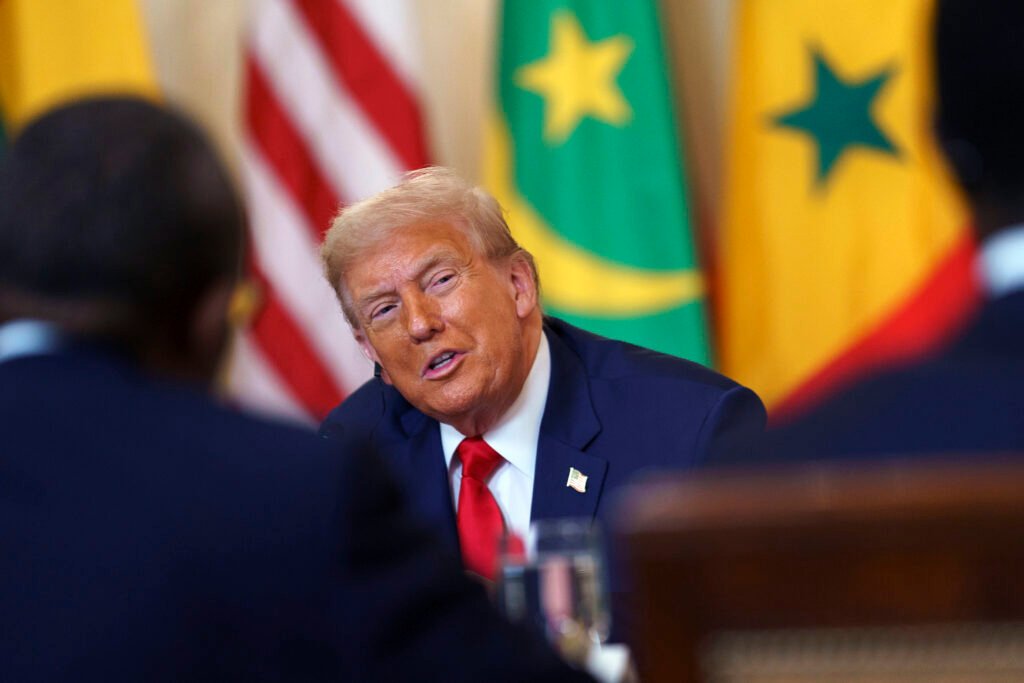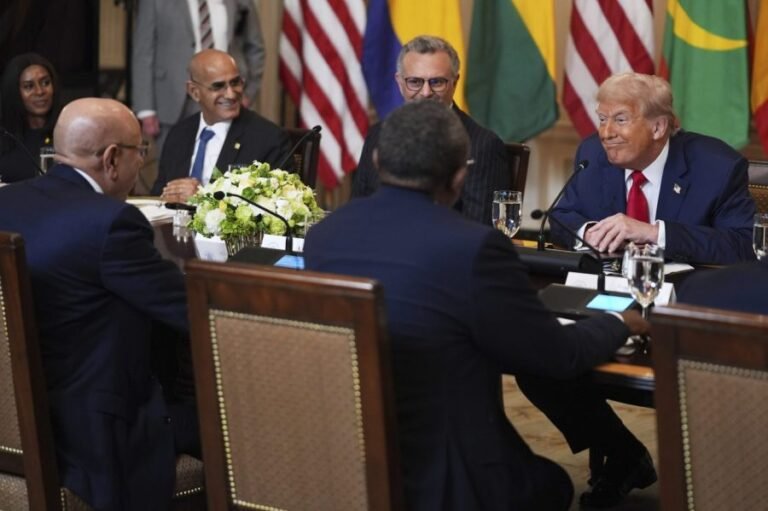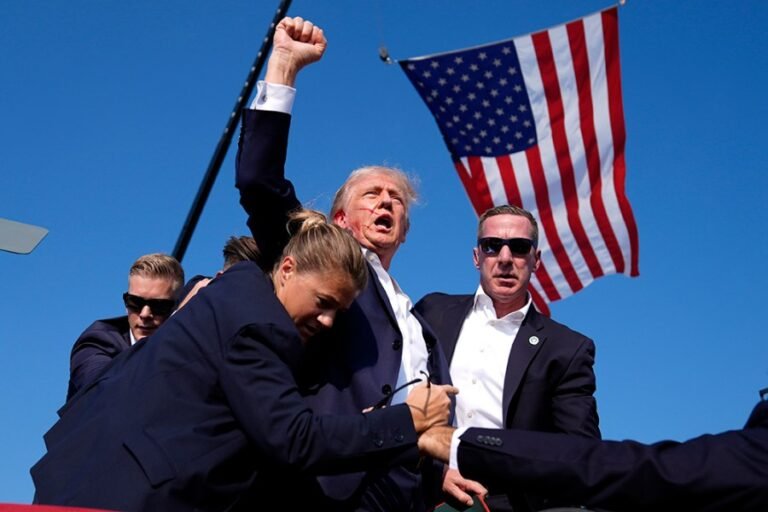
President Donald Trump is ready to sign a punishing Russia sanctions bill that GOP hawks have pushed for months. But only if it changes to give him more control.
A senior administration official granted anonymity to discuss the president’s view said that “conceptually there’s an openness” to the bill from Sen. Lindsey Graham (R-S.C.), but the person suggested that the legislation needs to preserve what the White House sees as the president’s sole authority to oversee U.S. foreign policy.
The current draft of the bill allows the president to waive a 500 percent tariff on countries that buy Russian oil and uranium for up to 180 days, and Graham said Tuesday he has agreed to revise the bill to allow for a second waiver, subject to congressional oversight.
The administration’s desired changes would solidify the president’s waiver authority, ensuring that Congress has no power to question Trump should he decide to end the sanctions.
“The current version would subject the president’s foreign policy decisions to micromanagement by Congress through a joint resolution of disapproval process. … That’s a nonstarter for us,” said the official. “The administration is not going to be micromanaged by the Congress on the president’s foreign policy. The bill needs a waiver authority that is complete.”
Trump’s new willingness to engage with Congress on a sanctions bill underscores his growing frustration with Russian President Vladimir Putin, who he says has rebuffed efforts to negotiate an end to the bloodshed in Ukraine.
“For the president now, he has invested his own reputation of being able to negotiate anything anywhere, and Putin has made him look foolish,” said one Republican operative close to the White House.
Trump said Tuesday that Putin was throwing “a lot of bullshit” at him and that he was “looking very strongly” at the sanctions bill. On Wednesday, Speaker Mike Johnson threw his support behind the sanctions push.
“Vladimir Putin has shown an unwillingness to be reasonable and to talk seriously about brokering a peace, and I think we have to send him a message,” he said.
Senate Majority Leader John Thune has been more circumspect, citing both “substantial progress” in working with the White House on the bill but also making clear his desire to get Trump fully onboard. He said in a floor speech Wednesday it was possible the measure could come to the Senate floor this month but offered no guarantee.
But the president’s comments, emphasizing that any additional Russia sanctions would be “at my option,” underlined what aides said is a top priority: maintaining maximum flexibility and total control over U.S. policy toward the Kremlin.
Two people granted anonymity to describe private discussions on Capitol Hill acknowledged that while the White House might broadly be supportive of the sanctions bill, they hadn’t yet reached an agreement with lawmakers on the scope of the waiver authority.
Thune acknowledged in a brief interview that the waiver language remains subject to negotiation.
“We’re still working with them,” he said, adding that they were “trying” to get everyone on the same page.
The White House, asked for comment on the state of play, pointed to Trump’s remarks.
So far, the GOP-controlled Congress has been remarkably pliant in the face of Trump’s pressure, delivering the president’s massive tax and spending package last week and backing the White House’s actions on trade, immigration and war powers — all areas where Congress has constitutionally granted authority.
Given that pattern, the administration expects lawmakers will craft the Russia sanctions bill in a way that satisfies Trump, even if that means giving up their role administering its provisions. That’s a shift from Trump’s first term, when a broad sanctions bill targeting Russia included language creating a former congressional review process.
Aside from his desire to curtail Congress’ ability to check him on foreign policy matters, Trump’s insistence on flexibility has just as much to do with keeping the door open for a potential breakthrough with Putin, according to the two White House officials.
Graham reiterated Wednesday that he believes Trump is on board with his legislation, saying that the president “wants a waiver, he’s got a waiver. He’s in control of how you implement the sanctions.”
“He told me he thought it would be helpful,” Graham said about his conversations with Trump about the bill. “We want to be a team. We want to help the president. This is an effort to give the president leverage he doesn’t have today.”
Even with the bill’s broad and bipartisan backing in the Senate — with more than 80 co-sponsors, it could theoretically survive a Trump veto — many Republicans are loath to take it up until there’s a clear and unequivocal statement of support from the president.
“The desire to move up here is real, but the risk is moving a bill that the president ultimately decides he doesn’t want,” said one GOP Hill official granted anonymity to discuss the private deliberations.
While Republicans are tentatively eyeing the week of July 21 to put the bill on the floor, some GOP lawmakers have been privately skeptical of Graham’s claims this week that everyone is on the same page. They want to hear Trump say it himself.
That’s particularly true for a handful of lawmakers in the “America First” faction of the GOP who have typically been at odds with Graham’s more traditional hawkish stances. Sen. Josh Hawley (R-Mo.), for instance, said he would be calling Trump this week to hear his thoughts on the bill directly.
“I know Lindsey has said now he’s in favor of it … [but] I just want to get clued into what his thinking on it,” Hawley said. “I just prefer to hear it from him.”
Said another GOP senator who was granted anonymity to speak candidly, “If the president’s in favor of sanctions, then I’m in favor of sanctions, but I defer to the president.”
“He’s the one in the middle of all the negotiations,” the senator continued. “He’s frustrated with Putin today. He’s been frustrated with [Ukrainian President Volodymyr] Zelenskyy before. And he’s the only leader in the world that can bring both sides together.”
Connor O’Brien contributed to this report.





